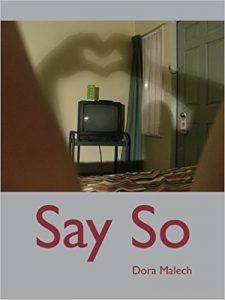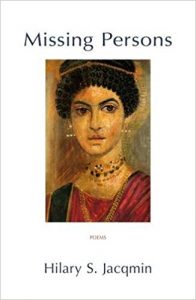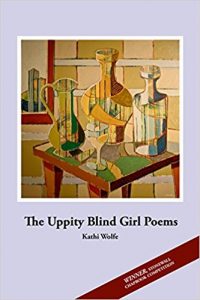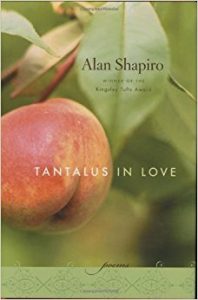by Mary Dzwonchyk, Information Services Librarian
February is upon us, which means Valentine’s Day is just around the corner. What better way to celebrate the season than by curling up with a book of love poems? Whether you’re happily coupled, contentedly single, or pining after an ex, nothing speaks to the universal human experience better than love poetry.
After all, haven’t we all had a sweetheart “like a red, red rose/That’s newly sprung in June”[1]? Surely your lover “walks in beauty, like the night,”[2] “an angel beautiful and bright”[3] whose “eternal summer shall not fade”[4], right?
Or does all that sound a bit…too good to be true?
If you’ve ever been in love, you know it isn’t all “cloudless climes and starry skies.”[5] Idyllic scenes of blissful ecstasy make up roughly 5% of most romantic relationships; the remaining 95% comprises episodes of mundanity punctuated by small joys, silly quibbles and petty quarrels. This is the daily reality of love: the coffee spoons[6], the plums stolen from the icebox[7].
The following list is a sampling of works from contemporary poets who approach romance from this perspective, writing about love in all its raw, imperfect, mundane glory. All the collections listed below are available to check out from the Pratt.
Say So by Dora Malech
 Malech writes about love in rollicking verse, peppered with quick, alliterative trips of the tongue. Clever wordplay and unexpected imagery make Say So an engaging read, and ground poems like “Love Poem” and “The End” in gritty reality.
Malech writes about love in rollicking verse, peppered with quick, alliterative trips of the tongue. Clever wordplay and unexpected imagery make Say So an engaging read, and ground poems like “Love Poem” and “The End” in gritty reality.
“Tell me you’ll dismember this night forever,
you my punch-drunking bag, tar to my feather.
More than the sum of our private parts, we are some
peekaboo, some peak and valley, some
Bright equation…”
(“Love Poem”)
 Missing Persons by Hilary S. Jacqmin
Missing Persons by Hilary S. Jacqmin
Jacqmin presents romantic vignettes from all stages of life, from awkward teenage courtship (“The Breaking Wheel”), to post-adolescent sexual exploration (“Wedding Album”), to adult cohabitation (“Coupling”). Throughout, Jacqmin’s detail-rich, relatable diction allows the reader to share in her frustrations, sorrows, and joys.
“The bastard thing of dating is the boys
who take you bodily to the Renaissance Fair,
How they are all inexplicably named Ashley,
And how they encourage you to chaw
On turkey legs as leathery as blackjacks.”
(“The Breaking Wheel”)
 The Uppity Blind Girl Poems by Kathi Wolfe
The Uppity Blind Girl Poems by Kathi Wolfe
Wolfe offers a unique perspective on love and relationships, detailing her romantic experiences as a visually impaired lesbian. Through poems such as “Love at First Sight” and “Blind Porn,” Wolfe relates scenes of romance and sex in a delightfully down-to-earth voice brimming with humor and candor.
“They’d clicked that night
When they kissed in Washington Square Park,
Until this guy, panting, leered, I gotta take a pic
With my phone — two blind chicks making out.”
(“Blind Porn”)
 Tantalus in Love by Alan Shapiro
Tantalus in Love by Alan Shapiro
Shapiro offers beautifully melancholic meditations on love and loss: the slow fading away of attraction in a twenty-year marriage (“Anger”); the specter of lost love remaining after a break-up (“The Haunting”); and the cautious emergence of new love after loss (“Medley”).
“In the TV’s soft light, at the foot of the bed,
In pajama bottoms and a skimpy tank top,
Her lovely body that he hasn’t touched
In how long now? five months maybe? longer?”
(“Anger”)
I’d also like to recommend one of my personal favorite, albeit less contemporary, love poems: Sonnet 130, by William Shakespeare. Abandoning his usual flowery hyperbole, Shakespeare here takes a refreshingly realistic approach. He writes fondly of a mistress whose dull skin and reeking breath sharply contrast the rosy-cheeked, ethereal maidens populating his contemporaries’ work. Despite her flaws, his love for this decidedly un-goddess-like woman is “as rare/As any she belied with false compare.”[8]
[1] Robert Burns, “A Red, Red Rose”
[2] Lord Byron, “She Walks in Beauty, Like the Night”
[3] Samuel Taylor Coleridge, “Love”
[4] William Shakespeare, “Sonnet 18”
[5] Lord Byron, “She Walks in Beauty, Like the Night”
[6] T.S. Eliot, “The Love Song of J. Alfred Prufrock”
[7] William Carlos Williams, “This is Just to Say”
[8] William Shakespeare, “Sonnet 130”